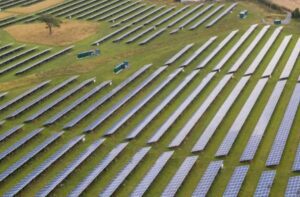West Australian energy minister Mike Nahan has delivered a damming critique of the regulators in his state, claiming that the “ban” on battery storage and electric vehicles for WA households was a case of “red tape gone mad.”
 Nahan has come under intense pressure in the last couple of weeks following a burst of publicity about the ban, which prevents any household with a battery storage device or an electric vehicle from being able to export back into the grid.
Nahan has come under intense pressure in the last couple of weeks following a burst of publicity about the ban, which prevents any household with a battery storage device or an electric vehicle from being able to export back into the grid.
This came just days after Nahan had hailed solar energy, and other technologies, as the future of the WA grid, suggesting that within a decade rooftop solar could account for all of daytime demand.
Nahan appears to have come to the conclusion that the best way to get WA out ofs its energy problems is to focus on distributed generation.
Right now, it has an unwieldy energy grid that is reliant on ageing, dirty coal fired power stations and expensive gas, yet needs to be subsidised by more than $500 a year for each household, or a total of more than $600 million.
Nahan appears to recognise that by removing those subsidies, solar and battery storage and electric vehicles will become even more attractive. The challenge is to effect the regulatory and tariff changes that allow that to happen …. and to happen fairly.
In response to questions in parliament late last week, Nahan said it was clear that regulators and regulations had been caught out and had “not adjusted with time and technological change.”
“It is red tape gone mad,” he said in direct reference to the “ban” on exports from storage and EVs, adding that it was a “rubbish” regulation which he did not know about, despite “hundreds of meetings on this issue”.
He said it was a decision locked in by regulators until 2017, because when they set the rules in 2012 they decided that they did not have enough information about the technologies.
But Nahan also noted that Synergy is able to have what is called non-reference tariffs or special tariffs. It is just that it was not possible to have such tariffs for one million households. “Synergy needed to come up with a regime of allowing people to export energy from batteries,” Nahan said.
And if it won’t, its new rivals will. Alinta Energy has revealed it will offer solar arrays under power purchase agreement, as its bigger rivals are doing in the eastern states. And it will offer battery storage too, although it thinks that this remains the province of “early adopters” for the moment.
Nahan, meanwhile, noted that solar energy is still growing at an annualised rate of 44.5 per cent in WA, which he said in “pretty good.”
And, he said the number of batteries will grow, but the biggest question was how to accommodate it.
“That is not what we do, so I will address this issue. I will cop the criticism that it should not be there. It is now 2015—three years on—and we have had a revolution, and the revolution will grow.
“We will address this matter. I do not know how we will address it. I have to get the ERA, Western Power, Synergy and the industry on board to come up with some pricing. We also have to get some data on the actual size of the batteries, the flow of the batteries and a whole range of other issues. “








